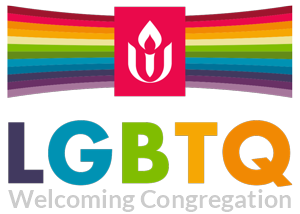
Easter Service - "Theodore Parker"
Audio Recording Of Service
Opening
Let us enter the atmosphere of a service with the Chalice Lighting:
We light this chalice of the light of truth
We light this chalice for the warmth of love
We light this chalice for the energy of action.
And…. These we carry in our hearts until we are together again.
Reading
I call that mind free which masters the senses, and which recognizes its own reality and greatness: which passes life not in asking what it shall eat and drink, but in the hungering, thirsting, and seeking after righteousness. I call that mind free which jealously guards its intellectual rights and powers, which does not content itself with a passive or hereditary faith: which open itself to light whencesoever it my come, which receives new truth as an angel from heaven. I call that mind free which is not passively framed by outward circumstances, and is not the creature of accidental impulse: which discovers everywhere the radiant signatures of the infinite spirit, and in them finds help to its own spiritual enlargement. I call that mind free which protects itself against the usurpations of society, and which does not cower to human opinion: which refuses to be the slave or tool of the many or of the few, and guards its empire over itself as nobler than the empire of the world. I call that mind free which resists the bondage of habit, which does not mechanically copy the past, nor live on its old virtues: but which listens for new and higher monitions of conscience and rejoices to pour itself forth in fresh and higher exertions. I call that mind free which sets no bounds to its love, which, whenever they are seen, delights in virtue and sympathizes with suffering: which recognizes in al human beings the image of God and the rights of God’s children, and offers itself up a willing sacrifice to the cause of humankind. I call that mind free which has cast off all fear but that of wrongdoing, and which no menace of peril can enthrall: which is calm in the midst of tumults, and possesses itself, though all else be lost.
William Ellery Channing 1780--1842
Theodore Parker
Several weeks ago the Tuesday morning spirituality discussion – the group reading The Book of Joy -- read about the Dalai Lama and Archbishop Desmond Tutu. The Archbishop loves the famous quote from Dr. Martin Luther King, Jr., who was himself quoting “an abolitionist minister named Theodore Parker.” The well- known line is “The arc of the moral universe is long, but it bends toward justice.” What King knew, but the book doesn’t mention, was that Rev. Parker was not only an abolitionist but also a Unitarian.
Only a few of the group recognized Parker’s name, so I realized my next day in the pulpit was an opportunity to bring a piece of UU history to light. Parker was a Unitarian. Keep in mind that the Universalists and Unitarians did not merge until 1961. Parker’s ministry took place a full century earlier, and 180 years before today. UU history is longer than many of us realize.
Theodore Parker was born the youngest of eleven children in 1810 in Lexington, Massachusetts, where he grew up on a farm. He wanted to attend college but had to delay it to raise money—which he did by teaching. . He was mostly self-taught for the equivalent of college. He managed to attend and graduate from Harvard Divinity School. By the time he was twenty-five he could read at least twenty languages. It was common for ministers to read the Biblical languages in order to understand Jesus’ teachings, but Parker went way beyond that. He was influenced by German theologians and the radical Higher Criticism movement, which raised issues of voice, audience, and word selection to help understand scripture. His early ministry focused on intellectual theology, though his later ministry moved into social activism.
Ordained in 1837, his first church was in West Roxbury, now named the Theodore Parker Unitarian Universalist Church. He married but had no children. His early marriage may have been unhappy enough that he had what today would be called an affair of the heart. He described the later stages of his marriage as very loving.
Parker’s identification as a radically liberal minister developed after he wrote “”A Discourse on the Transient and Permanent in Christianity” in 1841. This document stated that much of Christianity is transient, not necessary for true belief. The transient includes such concepts as the divine inspiration of scriptures, miracles, and the divinity of Jesus. Of course, the divinity of Jesus was denied by Unitarians in general -- God is a single unity, not a trinity – but Parker took that position to an extreme. He claimed the Bible is full of myths, even comparing the biblical stories to stories of Hercules, Jupiter, and Neptune. Imagine how that comparison went over in 1840s Christianity! What Parker said is permanent in Christianity is morality, the love of God, and prayer. He said Christianity is a religion OF Jesus, not a religion ABOUT Jesus – a profound difference. He always identified himself as a believer and a Christian. Conservative Christians of his time, and even most Unitarians, were offended and called him an infidel.
Besides his serious scholarship Parker was a much admired orator, in the days when the spoken word was crucial. He drew crowds to his sermons and distributed written sermons and discourses very widely. As his reputation as a profound speaker grew, so did his parish. In 1846 his admirers formed the Twenty-Eighth Congregational Society of Boston, where he served until his death. He was so vilified by other Unitarians, even ministers, that he had to preach his own installation sermon; no other ministers would participate. His church membership, however, was 7000, with 2000 average Sunday attendance. A 19th century megachurch!
The teachings of Jesus Parker valued gradually led him to social activism. He was still a radical theologian, but his time was primarily given to parish work and social justice. He was one of the first and strongest social activists out of faith, not out of social status. He advocated for women’s suffrage. He was the first to refer to God as Father and Mother—almost a new definition of the Trinity. But Parker was especially involved in the abolitionist movement, which is the context The Book of Joy places him in.
His abolitionist activities took place in the 1840s and 1850s, still before the Civil War and official end of slavery. There were free Blacks in his congregation, and Parker participated with them in helping escaping slaves. In 1850 the US Congress enacted the Fugitive Slave Law, which required northerners to capture and return runaway slaves. Parker hated slavery but didn’t think there was much he could do about that Southern issue until Congress made it a Northern issue as well. Parker was one of the founders of the Boston Vigilance Committee which encouraged Bostonians to refuse to obey that new law. He actively resisted, protected runaways, helped them find safety. He was arrested but never found guilty. In this age of increasing racism and prejudice he may offer a model of a commitment to social justice.
Abraham Lincoln’s famous statement from the Gettysburg Address about government being of the people, by the people and for the people also owes its origin to Theodore Parker. In the context of abolitionism, Parker wrote about ‘government of all the people, by all the people, and for all the people’. His sermons were so popular that written versions were widely distributed One of his parishioners had sent many sermons to the law partner of Abraham Lincoln, who clearly absorbed some of Parker’s thoughts.. Even before the Civil War Parker saw ALL the people as deserving equality.
Interestingly, the Fugitive Slave Law was signed into law by President Millard Fillmore, also a Unitarian. Fillmore also hated slavery but said he had taken an oath of office to defend the Constitution, which recognized slavery, and to uphold the laws, which Congress had just enacted. Parker, on the other hand, described resistance as following God’s law, which always takes precedence over human law. This debate between God and human law is still an issue – Viet Nam resistance, Civil Rights, Immigration. Many UU congregations, including in Wisconsin, were involved in the new underground railroad helping move Central American refugees north, often to Canada.
Even while working so hard in the community, Parker still participated in intellectual liberalism. He was deeply involved in the Transcendentalist movement. Many of us studied Transcendentalism as literature, but it had a religious and deeply spiritual aspect at its time. Most members of this movement were also Unitarians. Parker knew all its leaders – Emerson, Thoreau, Fuller. He wrote many articles for its magazine, The Dial. Transcendentalist theology was very similar to the positions Parker had already reached in his early life. They, and he, emphasized inner truth, reason, conscience, the universality of these truths. They deemphasized miracles, Bible stories, and the institutional church, which they thought developed apart from and even in opposition to Jesus’ actual teachings. It would ve close to a century before the Humanist movement became so strong in UU, but Parker and the Transcendentalists certainly foreshadowed humanist positions.
In 1859 Theodore Parker developed tuberculosis. By the time he became a minister twenty years earlier, his parents and seven of his ten siblings had died of TB. We are probably lucky he survived so long and left a tremendous theological and social heritage. He also left what was one of the largest private book collections in the country, and he left it to the Boston Public Library for everyone to use equally. Once he became ill, he left his church to travel through Europe – so much for the social distancing of the day. He didn’t even get to see the end slavery. In 1860 he died in Italy with his wife traveling with him.
I’ll close with my favorite quote from Rev. Theodore Parker. In fact, it is my favorite description of all time of Unitarian Universalism. If you are needing a little spiritual communion to help you feel connected on this Easter of isolation, reflect on these words of Theodore Parker:
Be ours a religion which, like sunshine, goes everywhere;
Its temple, all space;
Its shrine, the good heart;
Its creed, all truth;
Its ritual, works of love;
Its profession of faith, divine living.
